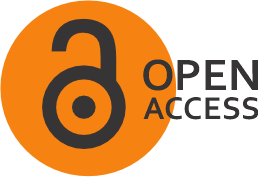Reimagining English Teaching Methods: Music Integration in a Rwandan Pre-Service Teacher Training Colleges.

Published online: 1 Sep 2025
Abstract
Purpose-This study examines the role of music education in improving English language skills among pre-service teachers in Rwandan Teacher Training Colleges (TTCs) following the full implementation of the Competence-Based Curriculum (CBC) in 2021. Research Methodology/Design/Approach-Guided by contemporary perspectives on second language acquisition, the study employs a mixed-methods design. Quantitative data were collected through English proficiency assessments administered before and after the implementation of music-centered instructional activities. Qualitative data were generated from semi-structured interviews with TTC educators to capture instructional practices and perceived learning changes. Qualitative analysis was conducted inductively by grouping recurring patterns into themes until thematic saturation was reached, and the two strands were integrated to strengthen interpretation. Finding-Preliminary results indicate that integrating music into English instruction increases learner motivation and participation while supporting phonological awareness, pronunciation accuracy, and vocabulary retention. Music-based activities appear to create a collaborative and low-anxiety classroom climate that encourages practice, enhances confidence, and sustains engagement during language learning. Originality/Value-This study contributes practical evidence for TTC educators and policymakers by positioning music as an accessible, culturally responsive, and potentially high-impact approach for strengthening English competence among future teachers in Rwanda. Beyond language outcomes, the findings suggest that music can function as a transferable pedagogical resource with broader relevance for learner-centered teaching across subjects and diverse educational contexts.
References
British Council. (n.d.). Secondary Teachers English Language Improvement Rwanda (STELIR).
British Council. (2025). Secondary Teachers English Language Improvement Rwanda (STELIR).
Flaugnacco, E., Lopez, L., Terribili, C., Montico, M., Zoia, S., & Schön, D. (2015). Music training increases phonological awareness and reading skills in developmental dyslexia: A randomized control trial. PLOS ONE, 10(9), e0138715. https://doi.org/10.1371/journal.pone.0138715
Gardner, H. (1983). Frames of mind: The theory of multiple intelligences. Basic Books.
Government of Rwanda. (2017). 7 years government programme: National Strategy for Transformation (NST1) 2017–2024.
Kao, T. A., & Oxford, R. L. (2014). Learning language through music: A strategy for building inspiration and motivation. System, 43, 114–120. https://doi.org/10.1016/j.system.2014.01.003
Ludke, K. M., Ferreira, F., & Overy, K. (2014). Singing can facilitate foreign language learning. Memory & Cognition, 42, 41–52. https://doi.org/10.3758/s13421-013-0342-5
Opoku-Amankwa, K. (2009). English-only language-in-education policy in multilingual classrooms in Ghana. Language, Culture and Curriculum, 22(2), 121–135. https://doi.org/10.1080/07908310903075159
Patel, A. D. (2008). Music, language, and the brain. Oxford University Press.
Patscheke, H., Degé, F., & Schwarzer, G. (2016). The effects of training in music and phonological skills on phonological awareness in 4- to 6-year-old children of immigrant families. Frontiers in Psychology, 7, 1647. https://doi.org/10.3389/fpsyg.2016.01647
Pearson, P. (2014). Policy without a plan: English as a medium of instruction in Rwanda. Current Issues in Language Planning, 15(1), 39–56. https://doi.org/10.1080/14664208.2013.857286
Rwanda Education Board. (2020). TTC summary curriculum framework 2020. Rwanda Education Board.
Talamini, F., Grassi, M., Toffalini, E., Santoni, R., & Carretti, B. (2018). Learning a second language: Can music aptitude or music training have a role? Learning and Individual Differences, 64, 1–7. https://doi.org/10.1016/j.lindif.2018.04.003
UNESCO. (2024). Competency-based curricula in Eastern and Southern Africa.
UNICEF. (2017). The impact of language policy and practice on children’s learning in Rwanda.
License
Copyright (c) 2025 The Author(s). Published by Borneo Novelty Publishing

This work is licensed under a Creative Commons Attribution 4.0 International License.
Permission is granted subject to the terms of the License under which the work was published. Permission will be required if your reuse is not covered by the terms of the License.
How to Cite
Downloads
Similar Articles


